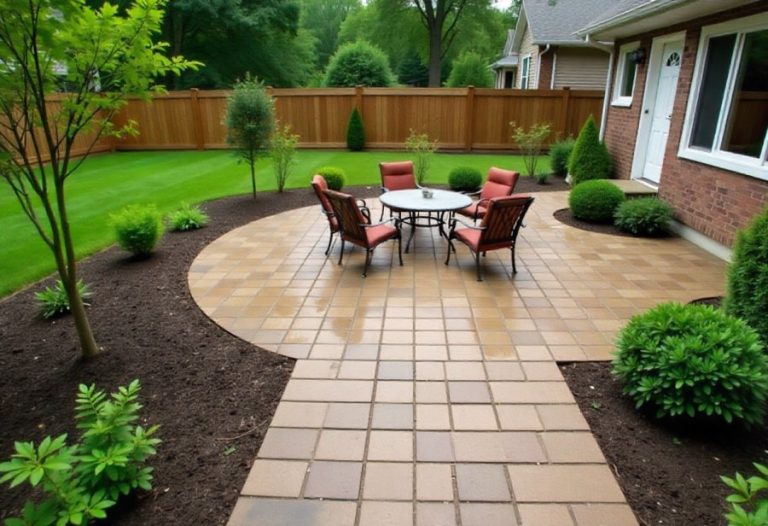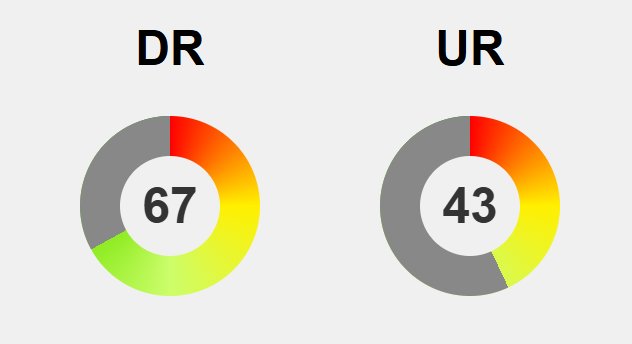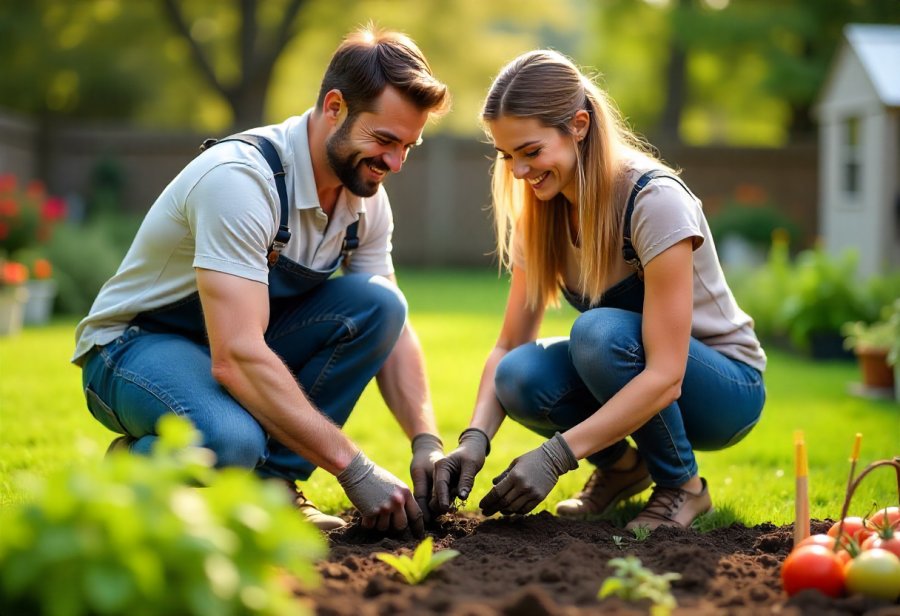
Imagine a world where tending a garden together not only nurtures plants but also fosters profound human connection and healing. In an age dominated by screens and rapid digital communication, can outdoor collaboration revive our sense of community and trust? This inspiring exploration reveals how shared gardening experiences—from planting seeds to harvesting vegetables—can break down emotional barriers, strengthen bonds, and promote mental well-being. Historically, communal gardens served as vital spaces for cooperation and resilience during times of hardship, lessons that remain powerful today. Through personal stories and scientific insights, the narrative underscores that cultivating patience, teamwork, and kindness in the soil mirrors personal growth and emotional healing. Looking ahead, innovations like urban farms and digital communities promise to expand these benefits, making gardening a universal language of nurturing resilience and compassion. Could the simple act of working side by side in a garden be the key to deeper, more meaningful human bonds?
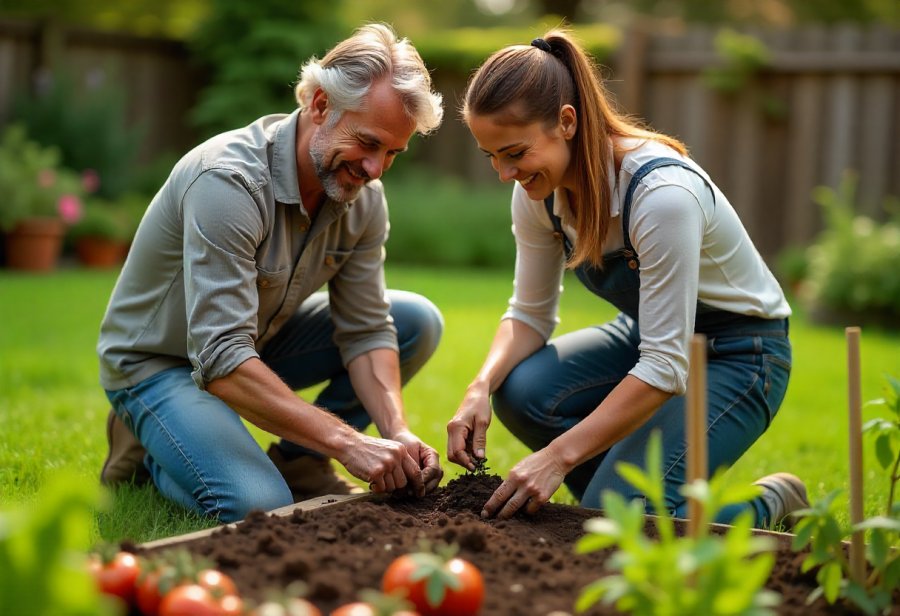
Gardening as a Bridge to Human Connection in a Digital World
In today’s fast-moving digital landscape, it’s easy to feel disconnected from those around us. We spend hours scrolling through social media, exchanging quick messages, and multitasking across countless apps, yet many still yearn for genuine human connection. Gardening offers a simple, yet powerful way to bridge this gap—creating shared spaces where real interaction and meaningful bonds can flourish.
Tending a garden together transforms a solitary activity into a collective experience. Whether planting seeds, watering, or weeding, these actions require patience, cooperation, and open communication. As you work side by side, barriers naturally fall away, paving the way for conversations that deepen understanding and trust. Over time, these shared efforts forge emotional bonds rooted in nurturing life and supporting one another.
Beyond the physical act, gardening connects us to nature—a timeless source of mental clarity and emotional healing. Spending time outdoors reduces stress and lifts mood, but doing so with others amplifies these benefits. The calming environment of a garden becomes a sanctuary for mindfulness, where presence and connection grow hand in hand. In this way, tending a garden becomes a gentle form of therapy—reclaiming space for peace amid the chaos.
Gardening together also nurtures emotional resilience. When faced with challenges like pests, unpredictable weather, or slow growth, teamwork fosters problem-solving and resilience. These shared struggles and successes build confidence and reinforce the idea that growth, both in plants and relationships, requires patience and mutual support. Working in the soil becomes a metaphor for nurturing trust and understanding in all aspects of life.
Most importantly, shared gardening is a reminder that meaningful bonds don’t happen by chance—they require effort, care, and time. This act of tending together creates routines centered on nurturing, patience, and kindness. It transforms a simple hobby into a ritual of love and connection, offering a peaceful space where relationships can deepen naturally and authentically. In a world increasingly dominated by screens, gardening stands out as a timeless way to grow closer to each other.
Harnessing History and Modern Science to Heal Through Gardens
Gardening has been a cornerstone of human life for thousands of years, serving not only as a way to grow food or beautify spaces but also as a powerful tool for healing and community bonding. In ancient civilizations, communal gardens weren’t just patches of land—they were vibrant social hubs where people gathered to share resources, stories, and support. These shared spaces fostered trust and cooperation, helping communities endure through difficult times like wars and economic hardships. Today, this tradition persists in community gardens and urban farms, proving that working together amidst nature continues to strengthen social ties and emotional resilience.
Modern research underscores what history has long demonstrated: gardening has tangible mental health benefits. Engaging with soil and plants reduces stress hormones like cortisol and releases mood-boosting chemicals such as serotonin. Programs centered on horticultural therapy, where trained professionals guide individuals through structured gardening activities, have shown remarkable success in helping people cope with trauma, grief, and anxiety. Whether planting flowers to uplift spirits or tending vegetables to find purpose, these activities nurture a sense of achievement and calm that supports emotional healing.
Historically, during times of crisis—be it war, economic downturns, or social upheaval—shared gardens often became essential lifelines. They were more than sources of nourishment; they were spaces of mutual support and cooperation. These efforts helped forge stronger social bonds, offering a sense of stability and belonging amid chaos. Today’s urban community gardens carry forward this legacy, bringing diverse groups together to nurture plants and rebuild community trust. These green spaces act as modern-day refuges, where working side by side fosters resilience and a collective sense of purpose.
Scientific studies continue to affirm that gardening promotes emotional well-being. Physical contact with plants and natural environments can significantly lower stress levels and promote feelings of tranquility. Therapeutic horticulture programs, which involve purposeful gardening activities, have been effective in alleviating symptoms of depression and anxiety. The act of caring for living things—watering, weeding, harvesting—becomes a mindful practice that keeps us grounded. Sharing these moments of nurturing life helps deepen emotional connections and creates a sense of hope and stability.
Personal stories highlight the transformative power of shared gardening. For instance, someone recovering from loss might find solace in tending a balcony herb garden, watching tiny seedlings grow gives purpose and hope. Similarly, families involved in planting flowers and vegetables often experience strengthened bonds through routines of joint effort and shared success. These everyday acts demonstrate that gardening isn’t just about cultivating plants; it’s about nurturing resilience, trust, and emotional strength. When done together, these activities become a gentle, effective form of healing.
All these examples show that gardening offers a natural, accessible path to emotional recovery and stronger relationships. From ancient communal efforts to modern therapeutic programs, the act of working in nature helps rebuild trust, foster communication, and support mental health. As we tend to plants, we tend to each other—making space for healing, understanding, and connection. In a world often divided and overwhelmed, shared gardening remains a timeless and powerful way to nurture both our well-being and our bonds.
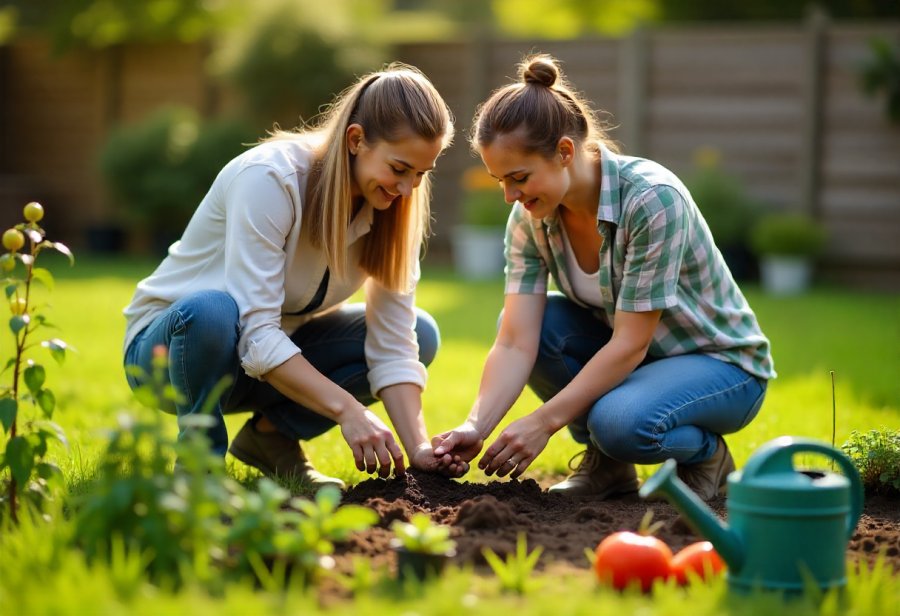
How Collaborative Gardening Cultivates Trust, Communication, and Support
Tending a garden together naturally strengthens communication and builds trust. When two or more people work side by side—whether planting, watering, or weeding—they learn to coordinate efforts and share responsibilities. These shared tasks require patience and active listening, creating opportunities for conversations that might be harder to have elsewhere. Over time, caring for the same plants fosters a sense of mutual reliance and confidence, deepening emotional bonds beyond the physical activity itself.
Working together in the garden also encourages support through challenges. Whether dealing with pests, unpredictable weather, or slow-growing plants, tackling problems as a team reinforces resilience and teamwork. These moments of joint effort highlight that success depends on cooperation, which naturally extends into other areas of life and relationships. The garden becomes more than just a shared space—it transforms into a foundation for mutual trust and emotional safety.
The physical act of tending plants side by side creates a relaxed environment where feelings and thoughts can surface naturally. Tasks like weeding or watering foster a sense of shared purpose, making it easier to open up about worries, hopes, or personal stories. Witnessing each other’s dedication and care through shared effort helps deepen understanding and empathy, making emotional closeness feel effortless and genuine.
Beyond fostering open communication, the garden cultivates bonds through shared achievements. Watching a seedling sprout or harvesting ripe vegetables together generates a sense of pride and collective success. These moments of accomplishment boost confidence in each other’s abilities and serve as reminders that growth—whether in plants or relationships—requires patience, effort, and teamwork. Celebrating these small wins reinforces a positive cycle of support.
The outdoor environment itself plays a vital role in strengthening bonds. Natural surroundings reduce stress and promote mindfulness, making conversations and connections more authentic. The peaceful setting encourages genuine emotional exchange, helping barriers fall away. In this nurturing space, relationships deepen organically, rooted in a shared experience that is both calming and meaningful.
Most importantly, tending a garden together underscores that healthy relationships need ongoing effort and care. Like plants, bonds flourish through patience, kindness, and regular nurturing. Sharing this activity creates routines centered on mutual support, fostering a sense of stability and trust. It reminds us that meaningful connection is cultivated over time, through everyday acts of kindness and cooperation.
In the end, working side by side in the garden becomes a powerful metaphor for human connection. It shows that growth and healing happen best when nurtured with patience and shared effort. Gardening together isn’t just about cultivating plants; it’s about cultivating trust, understanding, and love—one shared moment at a time.
For those interested in starting their own collaborative garden projects, exploring resources on community gardening can be incredibly helpful. These initiatives often emphasize the importance of teamwork and shared responsibility, much like the principles discussed above. You can learn more about how to get involved and the benefits of community gardening at this helpful resource, which provides practical tips and inspiring success stories.
Real-Life Stories Illustrating Gardening’s Power to Heal and Bond
Many people have discovered how shared gardening can transform relationships in meaningful, lasting ways. Take Emily and Mark, for example. After a stressful year, they decided to start tending their backyard vegetable patch together. Working side by side—planting, watering, and caring—they found a new way to reconnect. Those quiet mornings in the garden became spaces for honest conversation and mutual support, strengthening their bond far beyond the physical plants they nurtured.
Similarly, a family with young children found that involving everyone in planting flowers and vegetables created routines of patience and teamwork. Watching their seedlings grow and harvesting their efforts fostered pride and a sense of accomplishment. These shared routines not only developed practical skills but also built emotional bonds, turning the garden into a safe space where each member felt involved and valued.
There are also stories of individuals finding healing through gardening. One person, recovering from grief, started a small herb garden on their balcony. Tending tiny seedlings and watching them flourish gave a renewed sense of purpose and calm. These personal journeys highlight that gardening isn’t just about cultivating plants; it’s a powerful act of nurturing resilience and emotional strength, especially when done with others.
In many cases, outdoor tasks like weeding or watering create relaxed moments where conversations flow more naturally. The focus on caring for plants provides a gentle backdrop for sharing worries, hopes, or personal stories. Witnessing each other’s dedication and care through shared effort deepens emotional understanding, making bonds feel more genuine and effortless.
Finally, the tangible results—blooming flowers, ripe vegetables, thriving plants—offer a sense of collective achievement. Celebrating small wins together boosts confidence and reinforces teamwork, both in the garden and in relationships. These shared successes remind us that growth takes patience and effort, and that working side by side helps nurture not just plants but enduring human connections.
Through real-life experiences and heartfelt stories, it’s clear that shared gardening can be a powerful catalyst for emotional healing and stronger bonds. It turns simple acts of tending into meaningful rituals, fostering patience, empathy, and trust. As these stories show, gardening together not only cultivates a greener space but also helps grow resilience, love, and understanding—one shared moment at a time.

Envisioning a Future Where Gardens Continue to Foster Connection and Resilience
Looking ahead, the future of gardening as a way to strengthen human connections is brimming with exciting possibilities. Urban spaces are evolving with innovative solutions like vertical farms, rooftop gardens, and community green projects that make it easier for city dwellers to get their hands in the dirt. These new setups don’t just bring fresh produce and greenery into crowded neighborhoods—they create opportunities for neighbors to come together around shared efforts, fostering a sense of belonging and collective purpose.
Technology is playing an increasingly prominent role in connecting gardeners across distances. Digital platforms, social media groups, and specialized apps allow enthusiasts to share tips, showcase their progress, and celebrate successes together. Virtual gardens and online communities blur geographical boundaries, proving that even when physically apart, people can nurture bonds through their shared love of plants and nature. These tools make learning and collaboration accessible, reinforcing that gardening is as much a social activity as it is an outdoor pursuit.
Eco-therapy and nature-based healing programs are gaining momentum, emphasizing how outdoor work can support mental health and emotional resilience. More organizations are recognizing the healing power of tending plants, especially for individuals facing stress, grief, or trauma. These initiatives often bring diverse groups together, using gardens as spaces for recovery and connection. As mental health awareness expands, integrating gardening into community support models could become a common approach, turning green spaces into hubs of collective healing.
Inclusivity in gardening continues to grow as well. Adaptive tools, raised beds, and accessible community projects are breaking down barriers for people of all ages and abilities. This openness allows more individuals to experience the benefits of shared gardening—fostering diverse, vibrant communities united by a common love for growth and care. As access broadens, neighborhoods become more connected and resilient, rooted in the shared act of nurturing life.
Educational programs are increasingly weaving gardening into their curricula, recognizing its value for teaching patience, teamwork, and environmental stewardship. School gardens, community workshops, and youth projects create spaces where relationships blossom naturally. These initiatives not only pass on practical skills but also build social bonds, making gardening a vital part of community life and future generations’ understanding of collaboration.
Smart technology is poised to deepen these connections further. Automated watering systems, soil sensors, and garden management apps streamline plant care, freeing up time for meaningful interaction. When people work together on designing, maintaining, or troubleshooting these innovative gardens, they reinforce teamwork and communication skills. The integration of tech and nature can turn gardening into an even more engaging, bonding experience that appeals to all ages.
As society continues to embrace the restorative and connective power of gardening, its role in fostering community resilience will only grow. From urban rooftops to rural farms, tending together can become a universal language of renewal and compassion. Gardens of the future will be more than green spaces—they’ll be vibrant hubs where relationships are cultivated as naturally as the plants themselves, ensuring that the act of growing together remains a vital part of our shared human story.

